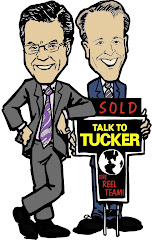4. Be prepared.
Make sure your contract has reasonable contingencies included to protect you as a buyer. Reasonable can be things like approval by a home inspector, and title clearance.
For the long-term investment, make sure that you buy homeowner’s insurance, and upgrade it as the value of your new home and its contents increase.
5. Be reasonable.
No home will be without flaws. Many times it’s these flaws that lend character to older homes, but nonetheless, it will take SOME work to personalize any home.
Preparing yourself with these five simple things – loan pre-approval, a great broker, getting to know the neighborhood, protecting yourself, and being reasonable – will help make the home buying process easier for you and your family.
Four Important Questions To Ask Your Mortgage Lender Before You Sign Any Of Their Documents...
1. Do you have a variety of loan programs to fit my cash flow and expected length of ownership needs?
If you’re going to live in your new home for less than five years, you may want to consider an adjustable rate mortgage or “ARM.”
With an ARM your payments will be lower, but they will go up according to the terms of the loan.
If you’re going to live in your new home for over five years, a traditional fixed-rate mortgage may be a better plan.
2. Do you offer written mortgage pre-approvals, not just pre-qualifications?
A “pre-qualification” is usually a Lender’s opinion of your eligibility for a loan. If you ask to be pre-approved, the Lender will actually submit your job and credit history to an underwriter and get a conditional approval for a loan and a loan commitment.
The advantage of having a pre-approval is that it will make your offer to buy a home stronger and it will usually allow you to close on the home faster.
3. Do you have the ability to handle difficult credit history?
Many Lenders will only work with you if you have perfect credit, and if a problem comes up, they won’t help you.
Make sure your Lender has reviewed and received approval for you and your specific credit history.
4. Is the rate that you quoted me the rate I will get at closing?
Many Lenders advertise their rates in the paper and in homes magazines. These are what are called “Teaser Rates” in the industry. The name says it all.
After they’ve got you committed to using them, many Lenders then tell you what the “real” rate will be. By this time, it’s too late for you to do anything about it.
Subscribe to:
Post Comments (Atom)


No comments:
Post a Comment